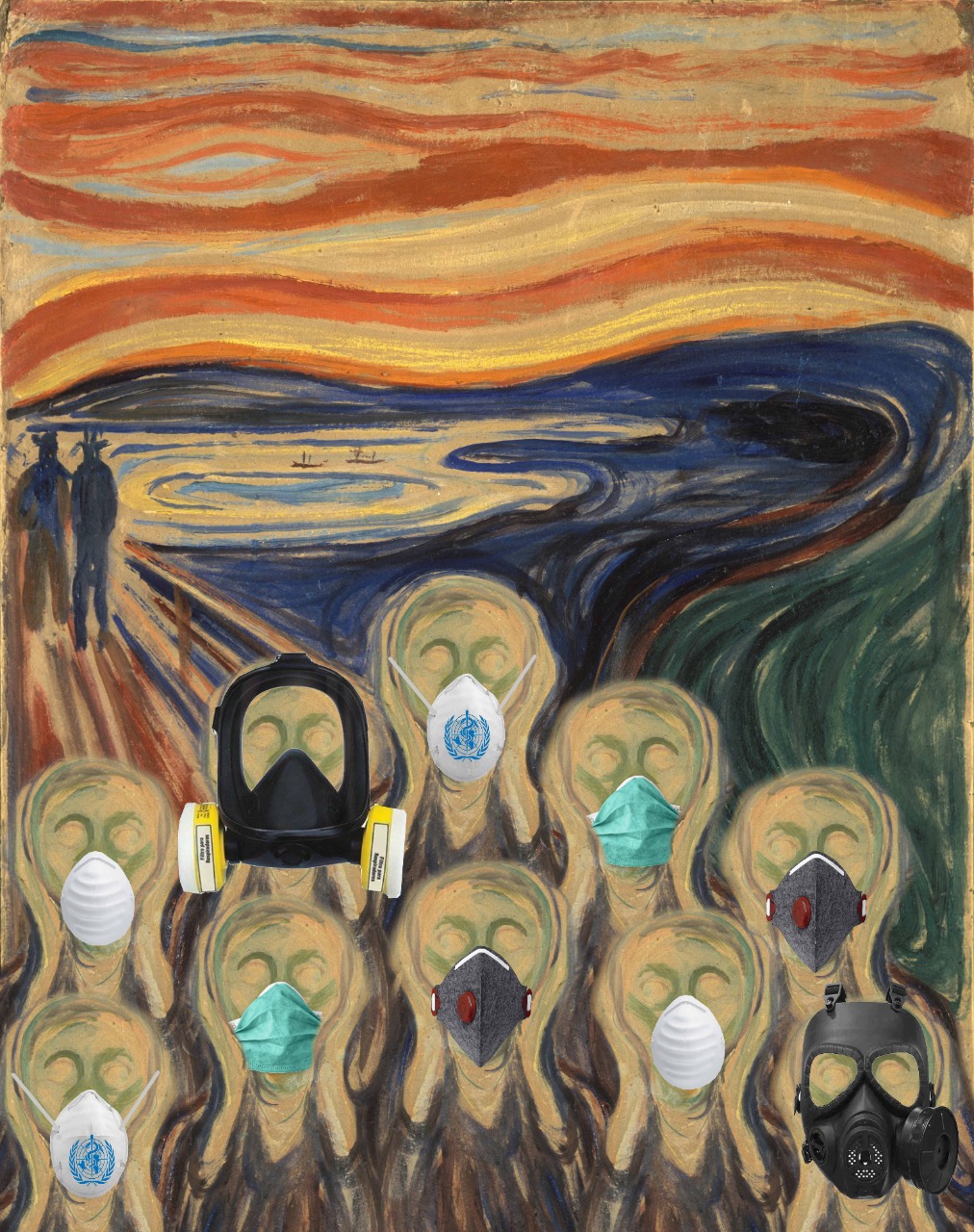PANDEMIA COVID-19: CATÁSTROFE SANITÁRIA E PSICOSSOCIAL
Resumo
A velocidade da pandemia COVID-19 e a incapacidade dos sistemas de saúde responderem oportunamente deflagram uma crise sanitária que evidencia a interdependência entre os processos ambientais, econômicos, sociais, culturais e políticos. Este ensaio procura demonstrar a importância das relações entre a realidade psíquica e a realidade externa nesta crise sanitária e social. Analisamos alguns dos seus condicionantes e manifestações, focalizando paradoxos e tensões que se destacam, particularmente, em dois âmbitos: a) nos padrões de sociabilidade e modos de representação do indivíduo na sociedade, destacando-se o paradoxo da formação imaginária do indivíduo individualizado, supostamente autônomo, potente e capaz de se autogerir, vis-à-vis a constatação crescente de seu desconhecimento, descontrole e incapacidade de salvação individual na pandemia, bem como o reconhecimento das desigualdades estruturais da sociedade, iluminadas pelos refletores da pandemia; b) no âmbito dos serviços públicos de saúde e do cotidiano de seus profissionais, o paradoxo da precarização histórica do Sistema Único de Saúde (SUS), predominantemente representado pela mídia, até então, como ineficaz, e sua súbita promoção imaginária ao lugar salvacionista de depositário das esperanças e, por isso, merecedor dos investimentos que lhe faltaram desde sua criação. Finalmente discutimos a pandemia COVID-19 como uma catástrofe psicossocial, resultante da superposição e interpenetração das catástrofes sanitária e social, enquanto realidade externa, à realidade interna (psíquica) dos sujeitos e apontamos a importância, para as possíveis reconfigurações da sociedade no pós-pandemia, de um trabalho coletivo sobre e pela palavra, em narrativas que visem a (re)construção de sentidos sobre o horror que ora vivemos.
Downloads
Referências
BAUMAN, Z. A sociedade individualizada: vidas contadas e histórias vividas. Tradução de J. Gradel. 1 ed. Rio de Janeiro: Jorge Zahar, 2008.
BECK, U.; BECK, G. Individualization: Institucionalized Individualism and its Social and Political Consequences. 1 ed. Londres: Sage Publications, 2002.
BRASIL. Emenda Constitucional Nº 95, de 15 de dezembro de 2016. Altera o Ato das Disposições Constitucionais Provisórias, para Instituir o Novo Regime Fiscal, e dá outras providências. Diário Oficial da União, Brasília, DF, 16 dez. 2016. Disponível em:<https://www25.senado.leg.br/web/atividade/materias/-/materia/136309 >. Acesso em: 06 mai. 2020.
CHEN, Q. et al. Mental health care for medical staff in China during the COVID-19 outbreak. The Lancet, v.7, n.4, 2020. Disponível em: <https://www.thelancet.com/journals/lanpsy/article/PIIS2215-0366(20)30078-X/fulltext>. Acesso em: 06 abr. 2020.
DAVIS, M. A crise do coronavírus é um monstro alimentado pelo capitalismo. In: _____ et al. Coronavírus e a luta de classes. Brasil: Terra sem Amos, 2020. p. 13-24.
ENRIQUEZ, E. Da Horda ao Estado: psicanálise do vínculo social. Tradução de T. Carreteiro; J. Nasciutti. 1 ed. Rio de Janeiro: Zahar, 1990.
GIDDENS, A. As consequências da modernidade. Tradução de R. Fiker. 5 ed. São Paulo: UNESP, 1991.
HAN, B. C. O coronavírus de hoje e o mundo de amanhã, segundo o filósofo Byung-Chul Han. El País Brasil, 22 mar. 2020. Disponível em: <https://brasil.elpais.com/ideas/2020-03-22/o-coronavirus-de-hoje-e-o-mundo-de-amanha-segundo-o-filosofo-byung-chul-han.html>. Acesso em: 23 mar. 2020.
HARVEY, D. Política anticapitalista em tempos de COVID-19. In: DAVIS, M. et al. Coronavírus e a luta de classes. Brasil: Terra sem Amos, 2020. p. 5-12.
HUREMOVIĆ, D. Quarantine and Isolation: Effects on Healthcare Workers. In: _____. (Ed.). Psychiatry of Pandemics. A Mental Health Response to Infection Outbreak. Switzerland: Springer Nature, 2019. p. 119-126.
KAËS, R. Os espaços psíquicos comuns e partilhados. Tradução de I. B. Machado; P. C. G. Castanho. 1 ed. Transmissão e Negatividade. São Paulo: Casa do Psicólogo, 2005.
LEVIN, J. Mental Health Care for Survivors and Healthcare Workers in the Aftermath of an Outbreak. In: HUREMOVIĆ, D. (Ed.). Psychiatry of Pandemics. A Mental Health Response to Infection Outbreak. Switzerland: Springer Nature, 2019. p.127-142.
MADEIRO, C. Na linha de frente, elas sofrem preconceito: É como se fôssemos o vírus. Uol, São Paulo, 02 abr. 2020. Disponível em: <https://www.uol.com.br/universa/noticias/redacao/2020/04/01/elas-estao-na-linha-de-frente-e-sofrem-preconceito-e-como-fossemos-virus.htm>. Acesso em 06 abr. 2020.
LECOMPTE, F. Edgard Morin: Nous devons vivre avec l'incertitude. CNRS - Le jornal, Paris, 06 abr. 2020. Disponível em: <https://lejournal.cnrs.fr/articles/edgar-morin-nous-devons-vivre-avec-lincertitude>. Acesso em 30 abr. 2020.
PRECIADO, B.P. Aprendiendo del virus. El País Brasil, 28 mar. 2020. Disponível em: <https://elpais.com/elpais/2020/03/27/opinion/1585316952_026489.html>. Acesso em 30 mar. 2020.
ROSSI, M. Periferia lidera as mortes por coronavírus na cidade de São Paulo, e as mulheres adultas são as mais infectadas. El País Brasil, São Paulo, 18 mar. 2020. Disponível em: <https://brasil.elpais.com/brasil/2020-04-18/no-mapa-do-coronavirus-na-cidade-de-sao-paulo-a-periferia-lidera-as-mortes-e-as-mulheres-adultas-sao-as-mais-infectadas.html>. Acesso em 20 mar. 2020.
SAMPAIO, C. Em silêncio e segurando cruzes, enfermeiros protestam na porta do Planalto. Brasil de Fato, Brasília, 01 mai. 2020. Disponível em: <https://www.brasildefato.com.br/2020/05/01/em-silencio-e-segurando-cruzes-enfermeiros-protestam-na-porta-do-planalto>. Acesso em: 6 maio 2020.
ZIZEK, S. Um golpe como o de "Kill Bill" no capitalismo. In: DAVIS, M. et al. Coronavírus e a luta de classes. Brasil: Terra sem Amos, 2020a. p. 43-47.
__________. Zizek vê o poder subversivo do Coronavírus. Tradução de S. Paz. Outras Palavras, 03 mar. 2020b. Disponível em: < https://outraspalavras.net/crise-civilizatoria/zizek-ve-o-poder-subversivo-do-coronavirus/>. Acesso em: 04 mar. 2020.
Os autores podem manter os direitos autorais pelo seu trabalho, mas repassam direitos de publicação à revista Caderno de Administração. A revista poderá usar o trabalho para fins não-comerciais, incluindo direito de enviar o trabalho em bases de dados de Acesso Livre.


















